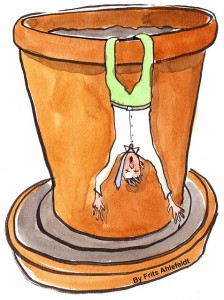 Remember Mood rings in the 70s? Okay, maybe you don’t. It was a long time ago after all. The idea behind a mood ring was that the “gem” would change colour depending on your mood. The change in colour was actually dependent on temperature. For those of us with cold hands our mood ring always indicated we were “anxious or stressed”. Suffice it to say they were kinda fun for a while but didn’t really indicate how we were feeling.
Remember Mood rings in the 70s? Okay, maybe you don’t. It was a long time ago after all. The idea behind a mood ring was that the “gem” would change colour depending on your mood. The change in colour was actually dependent on temperature. For those of us with cold hands our mood ring always indicated we were “anxious or stressed”. Suffice it to say they were kinda fun for a while but didn’t really indicate how we were feeling.
While the mood ring fad faded decades ago the idea of being able to detect our emotions using biometric data hasn’t changed. There are numerous devices on the market today that say they can detect your emotional state through your breathing, heart rate, etc. and the aim of all of these devices is to help you be less stressed.
Here’s a few:
Spire[1] is a beautifully designed tracking device that is meant to be unobtrusive. The purpose? As their website says, “by monitoring your breathing, Spire figures out when you’re calm, focused, or tense, and provides you with guidance and exercises when it matters most”. Linked with your mobile devices when Spire senses tension it sends reminders to breathe and calm oneself.
Being[2] is a watch-like device that “maps your moods, activities and sleep”. The creators say Being “provides health and stress insights for more mindful living” and also teaches ways to “transform bad stress into good stress”.
What’s missing for me is the contextual information about physical symptoms. What’s going on when one’s breathing or heart rate is increasing or temperature is dropping? What am I thinking or doing? Who am I with? Where am I?
This next device, Feel[3] is not yet available. The designers call it “the first wristband that recognizes and tracks human emotions throughout the day”. Feel is linked to your mobile phone where it sends the biometric information. What’s different here is Feel tracks your activities, who you meet and environmental conditions. Feel also says they offer a “range of recommendations” to improve your emotional wellbeing – both short and long term.
Finally, let me introduce the new mood ring- Moodmetric[4]. Moodmetric is called “smart jewelry for emotional wellbeing”. It’s way more attractive than the old mood rings. The designers state, “the Moodmetric ring measures the autonomous nervous system signals that can be used to understand emotional reactions and improve quality of life.” Like the other devices there are options within the associate app for calming one’s mind and interacting with and learning from one’s patterns of emotional levels.
Do I really need wearable technology to tell me how I am feeling or to serve as a reminder to pause, breathe, relax? Well, no. However, I can see how useful these devices could be to help people pay more attention to physical signs of stress and to learn ways to reduce tension in the moment. I would hope that it would also help people learn to spot those signs of rising tension earlier and empower them to pay attention to their bodies, minds and emotions without the aid of a device.
As I consider all of these devices I must admit I am equal parts curious and skeptical. Which means I will be paying close attention to the research and reviews.
Dawn M. Schell, MA, CCC, CCDP is an affiliate counsellor with Worldwide Therapy Online http://www.therapyonline.ca
[2] https://www.zensorium.com/being#introduction
[4] http://www.moodmetric.com/
*The views expressed by our authors are personal opinions and do not necessarily reflect the views of the CCPA








